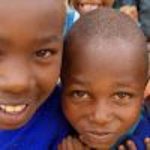
Region: Sub-Saharan Africa
The Kandula Community Project (Mbooni, KENYA) is located in the Makueni District of the Eastern Province of Kenya. It is approximately 120km southeast of Nairobi, Kenya’s capital city. Kandula is set upon Kyangoma Hill, with 10,000 people living on the eastern side of the hill and 5,000 on the western side. The people of Kandula are known as the Kamba tribe. Forming eleven percent of the population, they are the fifth most populous tribe in Kenya after the Kikuyu, Luhya, Luo, and Kalenjin.
IPM has supported the Kandula Community Project as an Emerging Project since 2004. The Partner serves the eastern side of the hill and positively impacts the community, by providing safe drinking water from the Kyamutuo Springs; free preschool and primary school education through the Thii Pre-School, Kyamutuo Pre-Primary School, and The St. Maria Goretti Primary School; as well as basket weaving training for the local women.
The Project is run by a retired school teacher, Susan Mutuku, who has worked tirelessly since 2002 to see that all children in her community are cared for and have access to education. In 2014, the Project has ensured that 75 students can attend a nursery or primary school, indirectly impacting an additional 70 people, including parents. Two hundred households, with around 1,200 people, have directly benefited from access to clean water.
I. Harvesting and treating ground water for the community
In the past, with IPM funding, the Project was able to harvest and treat ground water from Kyamutuo springs. Prior to this support, the makeshift well was unclean. The water drawn was not safe for household use and caused water borne diseases, including typhoid. The worst affected were children under the age of five. As a direct result of the dam’s construction and the water treatment, the community now reports a reduction in waterborne illnesses. However, the current dam can only serve a limited number of households amongst the growing numbers that require this much needed safe water.
II. Building and helping run two preschools and a primary school
In Kenya, primary education is free. However, admission into primary schools requires that children must have attended and completed one to two years of preschool education, otherwise they will not be able to secure enrollment into primary school. IPM wanted to help ensure that the children of Kandula can attend all levels of education. Thus, IPM helped provide free preschool education to the Kandula Community by building two nurseries, Thii Pre-School and Kyamutuo Pre-Primary School. The latter was constructed in response to the fact that the former quickly was overcrowded with students. Both nurseries have two classrooms and have been constructed using durable locally made bricks and a corrugated iron sheet roof.
To ensure greater access to primary education for children in the region, in 2010, IPM purchased the land for the development of a primary school, called St. Maria Goretti, and helped fund the school’s construction. As emphasized by Justina Maingi, one of the teachers at Goretti, before this school was built, students from the community entering Class 1, the Kenyan equivalent of the U.S. first grade, had to attend school in a makeshift wooden classroom situated under a tree to protect them from the rain. In order to get there, the students had to walk a hilly and dusty journey of 45 minutes each way to get to the nearest school. The Kandula Primary School currently has three classrooms and was approved by the Kenyan Ministry of Education in June 2013 to begin the process of registering with the Kenyan government Education Department, which is still currently underway. One of the elements required in the government registration process is ensuring an outdoor toilet facility. IPM is involved in supporting Kandula to finish the school toilets as well as connecting a water pipeline inside the classroom to have running water available for students to drink and wash hands.
III. Training women in basket weaving
Apart from enabling education in Kandula, IPM is providing greater training in sisal basket weaving, ensuring more microenterprise streams among local women. IPM purchases the baskets woven by these women, many of whom are single mothers or widows. IPM Immersion Experience Program participants to Kenya often support the initiative, by buying some of the women’s goods. However, since IPM has not had an Immersion delegation since 2013 due to the repeated terrorist attacks in Kenya, the need for financial support for this initiative will expand during the upcoming years. The women of the community have begun to weave baskets as an income-generating activity to help support their families. This activity supplements the efforts of the women who are mainly small scale farmers growing food crops such as maize, beans, cassava, vegetables & fruits for domestic consumption, and coffee as a cash crop. There are currently 23 women, who are part of this initiative.
IV. Goals & Projections
On the short-term, The Goretti Primary School is looking for funding to cover the teachers’ salaries, which are currently compensated by parent-paid fees. Another urgent goal is to be registered by the Education Department, which will ensure well-prepared teachers and teaching resources from the government. Susan Mutuku is also in need of a laptop, to use when coordinating the Project’s activities. The school is looking also to continuously expand, by at least one more classroom, in order to be able to accommodate students above class 2. The longer-term goal is to have eight classrooms by 2020, with one classroom being added annually. Each of the classrooms will require around $1,300 for materials and labor. Additionally, the Kandula Community Project would like to add an additional dam to increase number of households that can access to safe drinking water. Finally, the Project is looking for technical and marketing assistance to help the women weavers’ improve their bags’ designs and reach a wider audience for them.